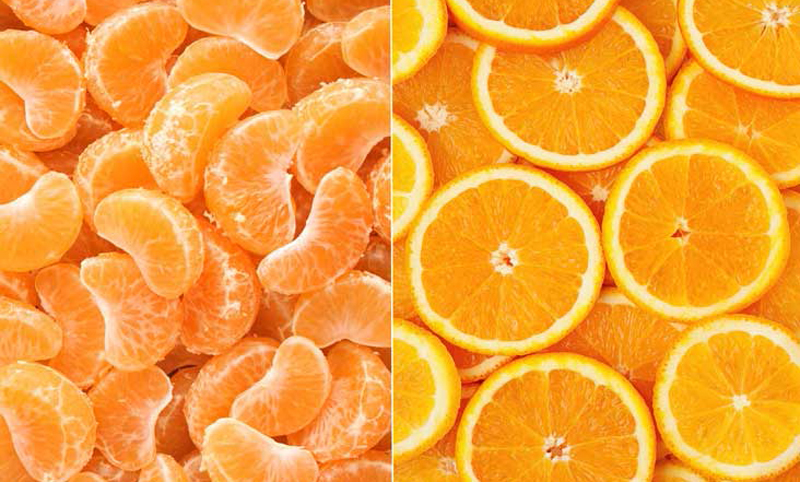
Types of oranges include Valencia and blood oranges that are sweet. We also have naval which comes without seeds. On the other hand, varieties such as bergamot and Seville are the bitter ones. The ones more available over the year are mandarin oranges. So here we already have more than five types of oranges in one go. Each one of these types has its uses. For example, the bitter orange varieties such as Seville and bergamot are used mainly for their skin and zest. These parts of oranges are used in the extraction of essential oils that are highly used for healing purposes such as aromatherapy. On the other hand, bergamot is also the reason behind the comfortable flavor of Earl Grey tea.
As you read further, you will get to understand the nutritional value of oranges in a better way. So, let’s begin.
Nutritional facts of oranges
- Calories: 62
- Calcium- 52.4 mg
- Fat- 0.16 gm
- Potassium- 237 mg
- Sodium- 0 mg
- Vitamin C- 69.7 mg
- Carbohydrates- 15.4 g
- Sugars- 12.2 gm
- Fiber- 3.1 gm
- Protein- 1.2 g
Carbohydrates and fats that you get from an orange
The fiber content of orange gets a special mention in this entire discussion because that is the most surprising. Those are all healthy fibers despite the source of carbs being fructose or fruit sugar. However, you need to know that oranges do not contain any kind of artificial sugar. Therefore, the glycemic effect is almost negligible in this fruit. Moreover, the glycemic rate of an orange is not more than 40. So, a diabetic person can have this fruit without worrying. It won’t increase their blood sugar levels immediately at all. Coming to fats, oranges are almost fat-free. They are also free of cholesterol.
Proteins in oranges
Minerals and vitamins in oranges
As mentioned earlier, oranges are a great source of Vitamin C and wait, because there is a lot more than just that. Oranges are a comparatively good source of calcium as well which helps to keep your bones and muscles stronger. Apart from this, orange is high on potassium and other forms of vitamins. Out of all other vitamins, you will mostly find vitamin B9 and B1 means folate and thiamin respectively. For a better understanding, you may look at a common comparison. If you take a medium-sized banana and an orange, the latter will contain a double amount of potassium as compared to the former.
Other health benefits of oranges
- Oranges contain a substance called hesperidin that can keep you protected from heart problems.
- Apart from all the minerals and vitamins, oranges also contain potassium citrate that is good for patients with kidney problems.
- Oranges help in the regulation of hemoglobin. Therefore, it is good for people suffering from anemia.
So, here is almost everything that you would want to know about the nutritional benefits of oranges.
Comments
comments